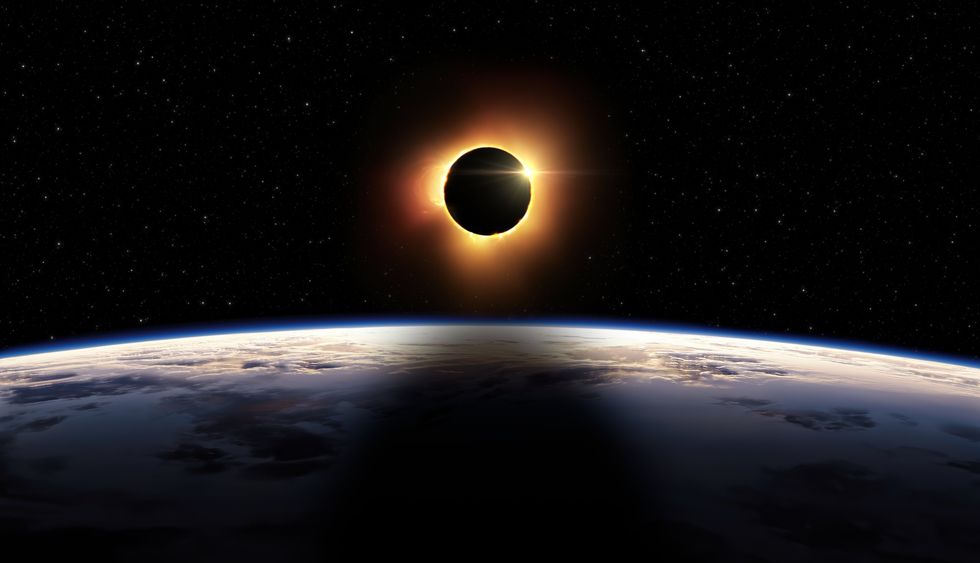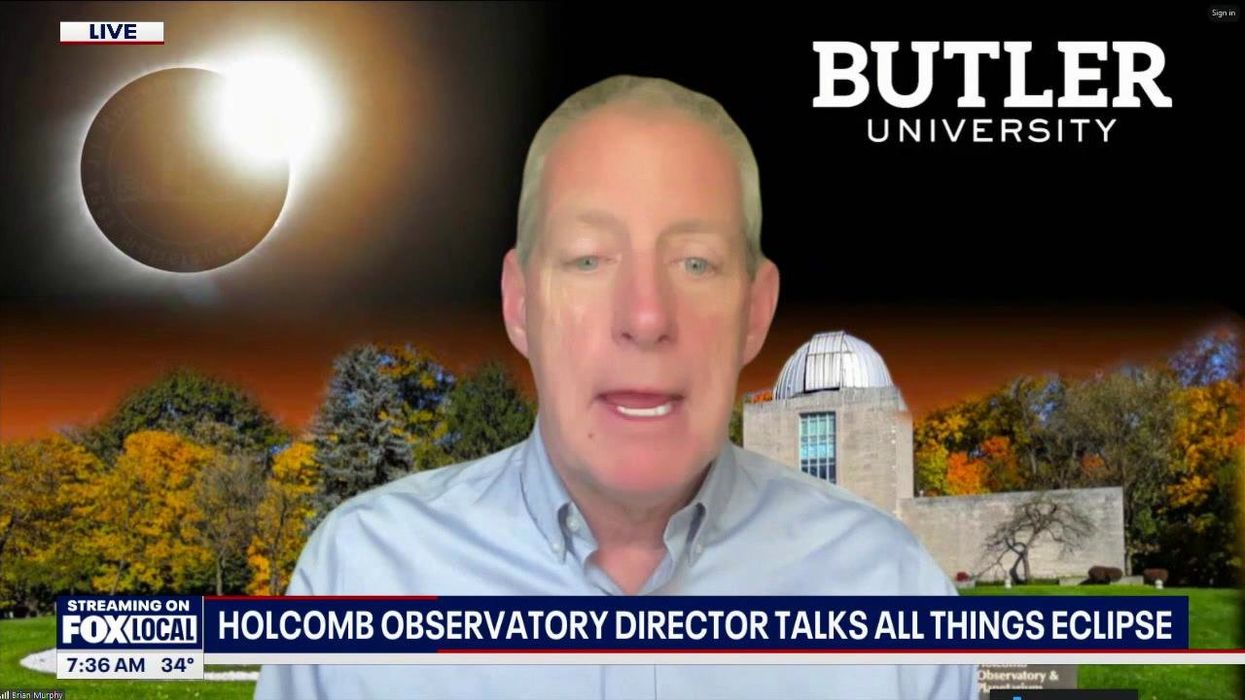Sinead Butler
Apr 07, 2024
Everything you need to know about Monday's solar eclipse
Fox - 32 Chicago / VideoElephant
NASA is making the most out of the upcoming total solar eclipse by launching three rockets into its path.
The total solar eclipse is set to occur on April 8 and will be visible across North America - with the event being dubbed as "Great North American Eclipse."
During this window, the three rockets launched will be used "to study how Earth’s upper atmosphere is affected when sunlight momentarily dims over a portion of the planet."
At a maximum altitude of 260 miles, the rockets are going to "measure charged and neutral particle density and surrounding electric and magnetic fields."
While the "disturbances" in the Earth’s ionosphere caused by the eclipse will also be researched (the Ionosphere is part of Earth's upper atmosphere and is between 55 to 310 miles above ground).
The rockets will be launched from Wallops Flight Facility in Virginia, each at different times, as the space experts explained:
“The sounding rockets will launch at three different times: 45 minutes before, during, and 45 minutes after the peak local eclipse."
The reason for this is so important data can be collected "on how the Sun’s sudden disappearance affects the ionosphere, creating disturbances that have the potential to interfere with our communications.”

Sea particles which have been ionized, electrically charged, from the Sun’s energy or solar radiation make up the Ionosphere, and recombine back into neutral particles at night.
But weather changes on Earth and in space can make it "difficult to know what the ionosphere will be like at a given time."
Studying short-term changes in the ionosphere during an eclipse with satellites can be difficult if the date and time of the event are unknown, but luckily researchers know exactly what time the total solar eclipse will take place tomorrow.
“Since the exact date and times of the total solar eclipse are known, NASA can launch targeted sounding rockets to study the effects of the eclipse at the right time and at all altitudes of the ionosphere.”
A number of teams across the country will be researching this event, from a team of students from Embry-Riddle, to researchers at Massachusetts Institute of Technology’s Haystack Observatory in Massachusetts, and the Air Force Research Laboratory in New Mexico.
Given that the next total solar eclipse over the US isn't until 2044, this is a rare chance for scientists to collect vital information for their research.
How to join the indy100's free WhatsApp channel
Sign up to our free indy100 weekly newsletter
Have your say in our news democracy. Click the upvote icon at the top of the page to help raise this article through the indy100 rankings.
Top 100
The Conversation (0)














